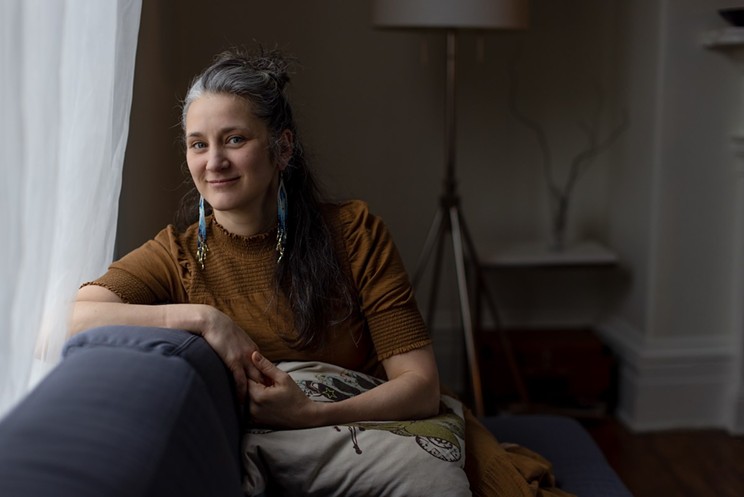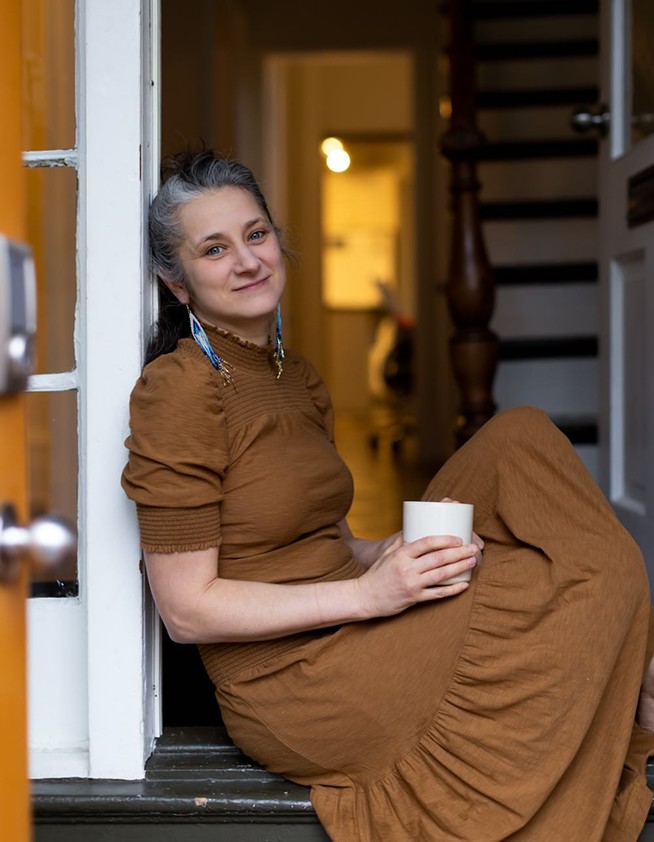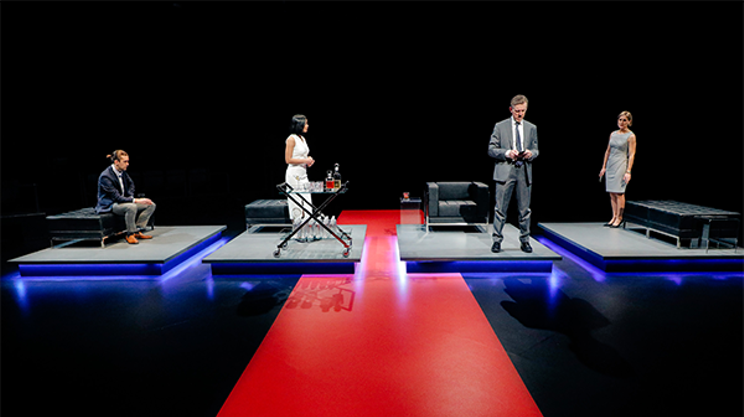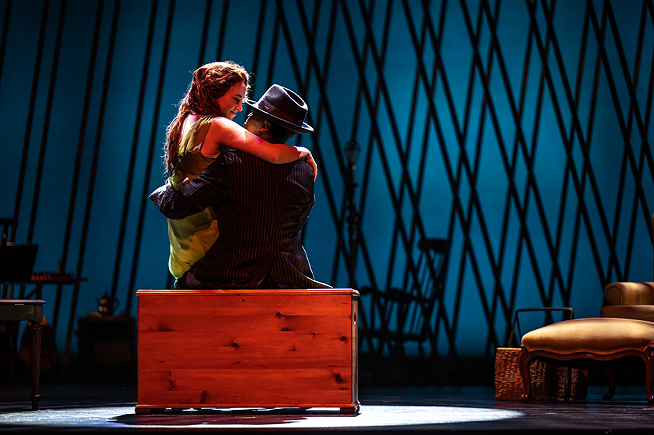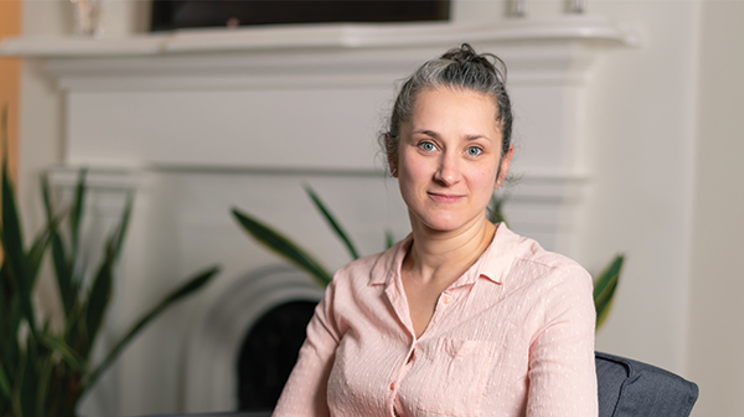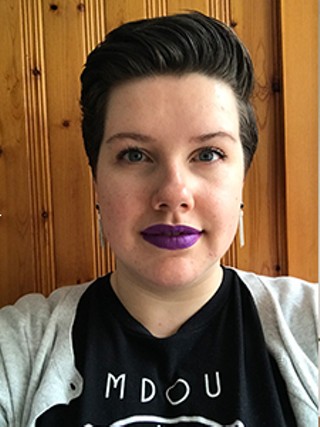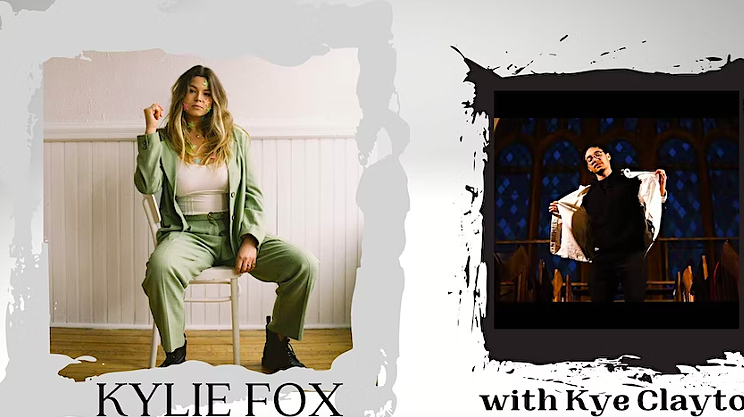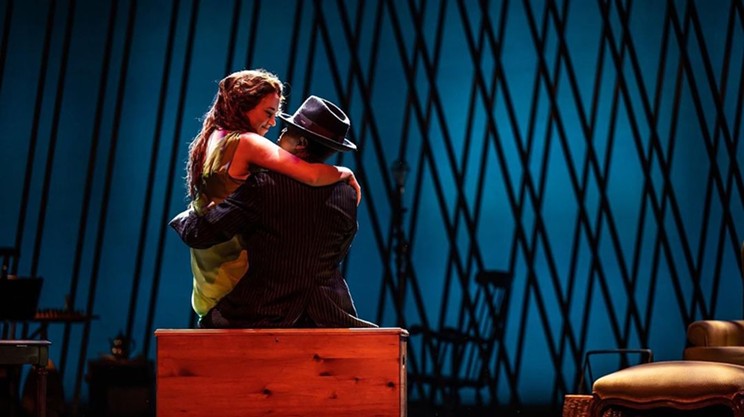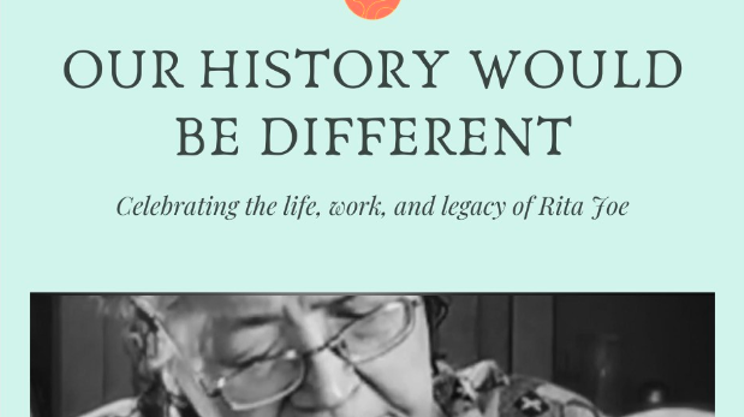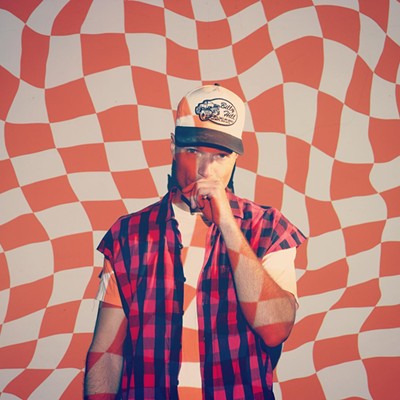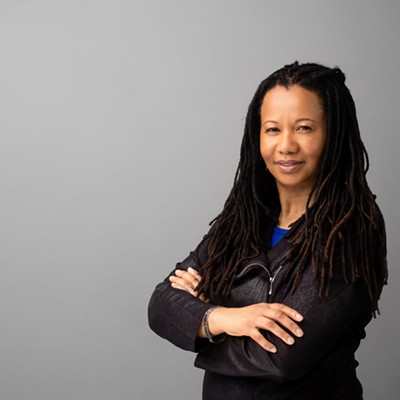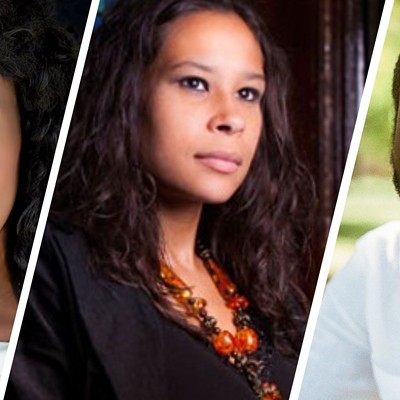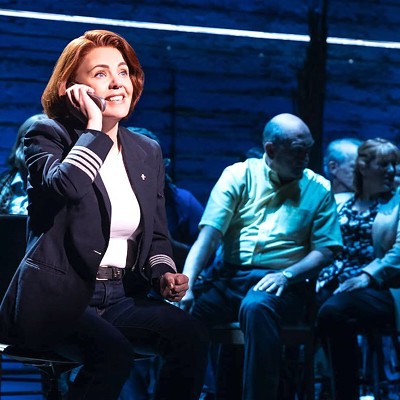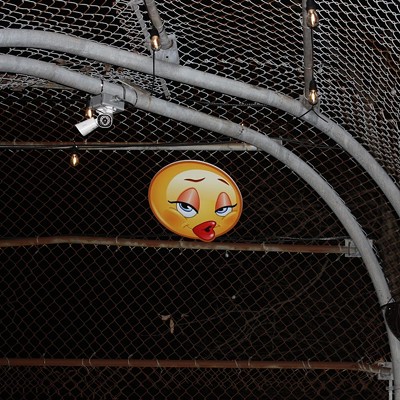There was a time—before her Governor General win, before she’d co-write a musical that’d take New York by storm, before she was a known quantity even outside the sphere of Canadian theatre—that playwright Hannah Moscovitch would sit in an idle Halifax cafe, clattering away on a laptop while her copy of Cape Breton’s most famous novel, Fall On Your Knees, stood watch. (For those keeping track, the time in question was around 2009.) Sometimes, she’d leaf to a particular passage for reference for her adaptation-in-progress—and other patrons would inevitably be compelled to interject as her nose and the page crept closer: “Ever since I started adapting it, people have come up to me when I'm holding it in public and told me it was their Bible. So, that's happening,” Moscovitch recalls years later over coffee in her north end Halifax kitchen, drawing out the last sentence in a sarcastic, no-pressure tone as we both erupt in smiles.
“‘Yeah, you and me, we’re in a book club—together. That’s my favourite book’,” she continues, playing the memory’s awkwardness for laughs. She’d almost always quickly cop to the truth with these strangers: “I’d be like ‘Cool, I’m adapting it, so I really hope I don’t..” she trails off, wincing to mimic disappointing the interloper.
Changing the 500-plus-pages, multi-generational opus that had become an international phenomenon and won the Commonwealth Writers Prize into a script could’ve gone terribly. But since it’s Moscovitch, it didn’t: Fall On Your Knees the play–which clocks in at a six hour total runtime, cut into two three-hour viewings—has been met with critical fervour since it opened earlier this year in Toronto. This weekend, it comes home to Halifax, beginning its run at Neptune Theatre February 10. Hopefully, these ghosts of Moscovitch’s coffees past will be pleased.
Knowing the regional significance of the work—which has been translated into 19 languages and printed in 23 countries—could’ve been enough to make a lesser writer crumble, let alone that it was author Ann-Marie MacDonald herself who’d approached Moscovitch to take her legendary work from page to stage.
But when I ask Moscovitch about how she handled the pressure, it’s almost as if it didn’t occur to her before now. “I'm not sure why that has played less on my mind. Like, my sister told me that reading this book is how she figured out she was queer, so no pressure,” she says with a laugh. “So it was more about that community that I felt beholden to. But, I'll say this: As part of adopting the novel, I went on a trip to Cape Breton and visited some of my husband's relatives who live on Cape Breton Island. And I did a kind of tourist version of Cape Breton via the lens of Fall On Your Knees: I visited Holy Angles and I went down the mine.”
This ad-hoc pilgrimage to the main sites listed in the novel helped Moscovitch keep its true shape as the adaptation process continued: “All the places that were named in the book, I went and looked at them…so that I could see what the layout of it all was, and what the distances were between things, and the geography of the region and know what it look like—and know what it looked like to look out to sea in that area of the world.”
She’s delighted when it becomes apparent that I’m less familiar with the source text than those previous, happenstance coffee companions: “I would say the core theme of it is: Lies and homophobia and racism ripple down the generations in families until the trauma is resolved. Like, everything that goes badly within a family, it echoes down until you resolve it,” she explains, gesturing in concentric circles.
Even still, it did take Moscovitch over a decade to distill MacDonald’s work into a finalized script: Detours took many forms, all of which built her resume into the type of document that testifies to her regent status within the landscape of Canadian theatre. (This is the exact sort of sweeping statement of coronation she’d hate, but is no less true: in the two times I’ve sat down with Moscovitch to talk about her work, praise makes her almost physically recoil from the table and conversation, with only her strong sense of politesse keeping her in her chair.)
From the Dora awards (Toronto’s answer to the Tonys) to winning the Nova Scotia Masterworks award (our province’s largest cultural prize) to being the first woman to win the prestigious Windham–Campbell Literature Prize, the receipts are there—but the best proof is probably how she’s infiltrated Canadian theatre, making it a space for messy stories that centre flawed, real-feeling women.
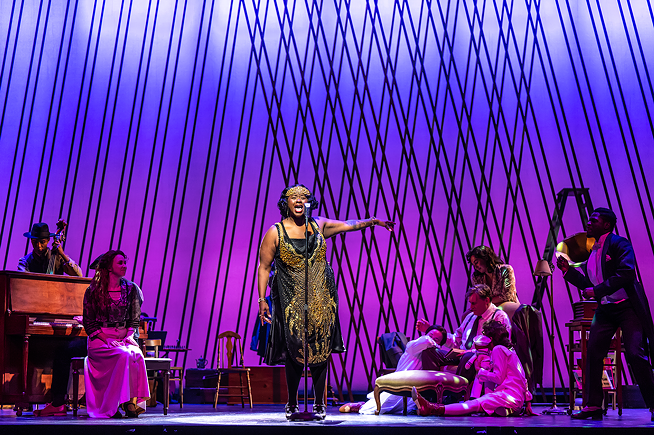
Meg Hubley might just be the biggest fan of Hannah Moscovitch around. Anyone I told that I was writing about Moscovitch told me Hubley was a mandatory call—but when they answer the phone for our interview, the first thing they share is a memory that gives scale to Moscovitch’s significance. “There'd be three Russian Play monologues at Ryerson auditions,” Hubley explains of the way new actors compete to recite Moscovitch works. “It was like finally something, that for a male dominated industry that's also extremely populated on the acting/working sphere by women: Finally, it was something that was exciting, and juicy, and not trite, and not, like, sexist for people to want to play and do.”
Hubley points to the complex characters Moscovitch has made her hallmark as part of the appeal: “The characters’ aliveness propels everything.”
It was probably inevitable that they’d eventually stage a production of Essay, one of Moscovitch’s earliest scripts; a one-act play about a student’s thwarted class assignment that quickly spins into an examination of the many forms sexism takes within academia.
I tell Hubley the same story I told Moscovitch after seeing Hubley’s 2021 production of the play: The show’s depiction of an out-and-out misogynist professor and a teaching assistant whose sexism is more subtle—and the way they both condescend to a woman student—almost made me run out of The Bus Stop Theatre because it reminded me of a conversation I had with a TA of my own during a gender studies class. (“But that’s the play,” Moscovitch replied when I recounted the memory, brow knitted, almost confused at the duality. Hubley was decidedly less shocked that their idol could create a scene so lifted-from-life: “It’s scarily accurate: Her characters, her subject matter being such private, behind-closed-doors things that you sort of get to eavesdrop in on…Everyone's had those sorts of experiences, but then to extrapolate it and blow it up to hugely dramatic proportions is so cathartic,” they say.)
“She has this huge body of work. It gets done all across the country. Her work has longevity, which as a playwright is sort of what you want—and there's so many plays that play once, they have one premiere, and they never see them again. And her plays get done over and over and over,” adds Hubley.
Take, for example, Moscovitch’s play What a Young Wife Ought to Know, Hubley says: “That show, multiple people have literally passed out in the audience of. There's some very upsetting medical miscarriage and traumatic birth stuff in that show. It's also really funny at the same time. Her way of expressing the grimness: She's articulated the truth of something in such a way that it's like really hitting, but also the circumstances or the people within the play are funny…There's a sense of humor within the character.”
They continue: “I think when she does touch on those grim subject matters, She's not the kind of writer that's sensationalist. It's all coming from the character. It's all coming from the people—and she is just spookily great at characters.”
Days later, Kat McCormack, executive director of Eastern Front Theatre (one of Atlantic Canada’s premiere theatre companies) confirms Hubley’s portrait of Moscovitch’s significance before I get the chance to ask: “She writes on topics that are real and relevant, and she doesn't flinch away from them. And so many of those things are women’s stories, and they're told through an angry fucking woman’s lens: Someone who's really experiencing it…As a young actor, you see these plays and you think, ‘Oh my God, who do I have to murder to get to perform that? Like, how do I get involved with something with this kind of honesty?’,” they say, deadpan delivery belying an enthusiasm so strong it barrels through the phone connection. “Hannah, who I dub as Canada's theatre darling: I mean, she's amazing. She's iconic. When I was coming up as a young theatre artist, working as an usher at Neptune, seeing her plays and finding out that was local? It really threw me for a loop.”
“As a young actor, you see these plays and you think, ‘Oh my God, who do I have to murder to get to perform that?’”
tweet this
When it comes to Moscovitch’s impact on Canadian theatre, McCormack’s answer is immediate: “I think the biggest thing is, like, I hate to put into words,” she sighs, “because it always almost diminishes the work immediately to half the population or whatever, but: The way she writes women, women making shitty decisions, women being sexual, owning their sexuality: She just writes the full spectrum of a gender that is often pigeonholed… She just writes realism—and she doesn't shy away from the horror of what it is to be a woman.”
When I ask them why they, like millions of others around the world, continue to love Moscovitch’s work—given that she often writes plays about the trauma of war (see: USSR and Old Stock) or the ways power dynamics play out in relationships (Sexual Misconduct of the Middle Class and Post-Democracy )—McCormack takes a beat.
“I think chatting with her, she always almost seems surprised that anyone else relates to this work that she's making, but she is the voice of our time. Like she nails it,” they reply. “She's just writing at a level that's just universal, what she's saying: It really just packs a punch. And it's hard to put a finger on it, but it's unflinching, definitely. It's realistic and it's never trying to tell you anything except a story. But the story is gonna make you question your own life and your own motivations when you leave the theatre.”
There’s an ineffability Moscovitch fans carry about her work, a wordless mass at the tongue’s tip that McCormack and Hubley both wrestle against. It’s because, as Moscovitch herself will tell you, her brand of writing is one that skews dark.
But it isn’t as simple as parading human ugliness onstage: Moscovitch’s dialogue see-saws between rat-a-tat and heavy pauses. (“In her script [of the play Essay] she will have ‘beat’ written in. So in rehearsal, we got into the habit of our stage manager saying ‘beat’ and actually pausing the speaking. Because it was a big thing of like: ‘You don't speak because your line is next. You speak because you have something to say.’,” Hubley told me. )
Within the spaces, the realest—and often worst— parts of Moscovitch’s all-too-human characters leak out. (As McCormack put it: “we're always drawn to the grotesque, in a way, and she just lets it all hang out, unapologetically, through these characters who are making bad choices. And you know these people. You know these characters. You are these characters. It’s all horrifyingly relatable.”)
From a war refugee that betrays her husband to a big-shot business tycoon revealed to be a predator, you rarely root for a Moscovitch character—but their inherent familiarity compels you. It’s a pressing of the audience’s face against the glass of humanity’s grotesqueness. It’s placing the often-invisible scaffolding of the patriarchy under bright stage lights, and watching as her characters scramble and stumble to climb it.
When Moscovitch won the Governor General award for her play Sexual Misconduct of the Middle Class in 2021 (a story that flips the perspective on a student-teacher relationship), I asked her: “in terms of balancing all the heavy stuff, does it almost feel like you're swimming in this big pool and then you take a little cup of water and leave the pool with that? And so everyone's all like: ‘That cup looks really heavy.’ And you’re like:’ I was just kind of in this’—” she nodded, picking up midway: “This whole pool, back there, behind me! Welcome to a glass of it! That’s a beautiful metaphor, exactly. And it feels like that pool has people in it to whom I owe something.”
It’s this unflinching-ness that makes the Fall On Your Knees adaptation feel an almost foregone conclusion: Who better to bring a beautiful, bleak portrait of a family’s generations-long struggle to life than the playwright who’s captured so many shades of ash and grey?(And if previous Moscovitch plays have often been an audience exercise in the inability to look away, her newest work is an endurance of another form, due to Fall On Your Knees' total runtime of six-hours).
After COVID left live theatre decimated (and Moscovitch pivoted to TV writing, bringing her signature brand of wry darkness to AMC’s Interview with a Vampire) the heft of Fall On Your Knees feels not only like a return, but a doubling-down. An event, in the old-fashioned, velvet-seated way theatre often is in people’s imaginations. (The novel’s tightly woven story also made shaving down the storyline impossible, Moscovitch tells me.) “At a certain point, we were like: Well, there's a kind of weird tipping point, with you asking people to sit through that much theater is an event,” she adds. “You're like, ‘Yeah, six hours.’ So either that's for you, or it's not. But it's going to be a big event in your life.”
The play is heavy, Moscovitch adds, setting her now-empty coffee cup aside. “You ask yourself, like: Okay, so in the DNA, this is dark. It's just in the DNA of this project. You can't avoid the darkness: There's no structural way to not go dark with this story—because that is the story, literally.” I ask her if the second viewing feels like dessert, a reward for the more bracing parts that come earlier in the story. She nods. “We talked a lot about balancing the party and the pain,” she adds, saying that alongside splunking the secrets of the story’s central family, a cabaret serves as a central plot location.
“I think as I've gotten older, I have a totally different relationship to dark material. I think when I was younger, I was a bit like: ‘Yeah, fuck it. You should be able to absorb.’ And as I've gotten older, I've been like: ‘God, it's hard to absorb dark material. Like, our lives are dark. But also it's important for healing that we talk about dark things.’ Which is a very different take than I would have had 10 years ago.” Moscovitch says.
“I think I was meaner when I was younger about darkness. I was like: ‘Everyone should have to deal with the fact that there's darkness in the world, and I’m gonna put darkness on stage and you're gonna have to deal with it.’”
tweet this
What would her take have been 10 years ago, I ask? “I think I was meaner when I was younger about darkness. I was like: ‘Everyone should have to deal with the fact that there's darkness in the world, and I'm gonna put darkness on stage and you're gonna have to deal with it.’ Which is a bit mean.” She pauses, a slant of sunlight catches her eye across the room. “Whereas now I'm like: ‘Yeah, we have to deal with darkness in the world to heal.’”

